The advantages of using titanium in automobiles are self-evident. It can greatly reduce mass, reduce fuel consumption, improve work efficiency, improve environment and reduce noise. The key is how to reduce the cost of
titanium precision parts to an acceptable level. The cost of rolling titanium products is 4.4USD/kg if traditional production technology is adopted. According to general experience, the cost of each processing step should be doubled, so the cost of materials should reach at least 17.6 USD/kg. The cost of rolling products is as high as 44USD/kg after they are manufactured into final machined parts. Obviously, it is impossible to replace the corresponding steel parts with such titanium materials. However, the use of powder metallurgy titanium is quite different. If the price of titanium sponge powder or residue is 4.4-8.8 USD/kg, the cost of net or near net shape compacted billet will be less than 4.4 USD/kg. After the minimum amount of cutting, the cost of connecting rod and other parts is 8.8~11USD/kg. Powder metallurgy can not only use low-cost raw materials, but also reduce the cost of mechanical processing, especially net-shape or near-net-shape method is an effective way to produce larger and lower-cost automotive parts. It can be seen that powder metallurgy titanium materials have a strong competitiveness.
Titanium, with a series of advantages such as high strength to mass ratio, high strength at high temperature, corrosion resistance and thermal stability, has attracted wide attention. However, the traditional uses of titanium precision parts are mainly concentrated in the aerospace and navigation industries. The main restrictive factors of civil titanium materials are product cost. Titanium powder metallurgy (PM) is a production method of Titanium parts which is completely different from other technologies. Powder metallurgy (PM) is used to produce parts instead of sponge titanium. Powder metallurgy can limit waste associated with traditional titanium production, and does not require vacuum arc remelting, electron beam smelting or plasma arc smelting. Powder can be directly formed into any shape or rolled product, reducing the raw materials needed to make a component and producing higher output. This process can also produce near-net parts, reduce the waste usually accompanied by traditional parts production, less process steps, and improve output. However, there are still some problems to be improved in powder metallurgy, the most important of which is pollution control. Any pollution will make metals not suitable for high precision parts. Powder metallurgy titanium alloys (PM-Ti alloys) are facing many difficulties in the aviation market due to the high structural standards in the aviation field, but they can be used in civil fields where the structural requirements are not so strict. Among them, the most likely industry for large-scale application is the automobile industry. The automobile market is huge. Once the application of titanium materials in the automobile industry is promoted, the amount of titanium used will far exceed the current aviation and aerospace markets.

 +86-021-50327060
+86-021-50327060
 zq@lzqtech.com
zq@lzqtech.com
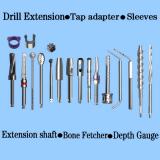 Medical Instrument
We can achieve perfect edge quality and dimensional tolerance up to±0.0005mm (±0.5μm) in the process of micro, ultra-long, ultra-thin, super-abrasive, impact-resistant, high-precision and combined ... VIEW MORE
Medical Instrument
We can achieve perfect edge quality and dimensional tolerance up to±0.0005mm (±0.5μm) in the process of micro, ultra-long, ultra-thin, super-abrasive, impact-resistant, high-precision and combined ... VIEW MORE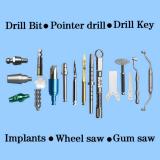 Implant
Corresponding and matching drills and tools of different types, forms, shapes, structures can be high precisely ground to mold according to different brands and different types of implants forms, shap... VIEW MORE
Implant
Corresponding and matching drills and tools of different types, forms, shapes, structures can be high precisely ground to mold according to different brands and different types of implants forms, shap... VIEW MORE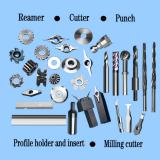 Cutting Tools
Super-hardness machining for special, non-standard new ite ms with different size and tolerance. VIEW MORE
Cutting Tools
Super-hardness machining for special, non-standard new ite ms with different size and tolerance. VIEW MORE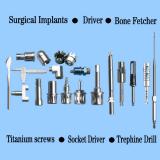 Accessory Parts
we can customize for you according to your samples or drawings for any manufacturing of ceramic,carbide,stainless high-speed steel, stainless steel, titanium alloy, titanium diamond, etc series, hig... VIEW MORE
Accessory Parts
we can customize for you according to your samples or drawings for any manufacturing of ceramic,carbide,stainless high-speed steel, stainless steel, titanium alloy, titanium diamond, etc series, hig... VIEW MORE

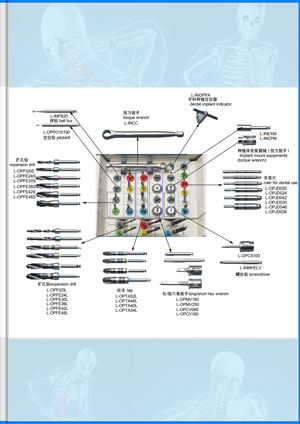
 +86-021-50327060
+86-021-50327060 
 NO.1269 Plant, Jinhu Road, Jinqiao Export Processing Zone, Pudong New District, Shanghai, China.
NO.1269 Plant, Jinhu Road, Jinqiao Export Processing Zone, Pudong New District, Shanghai, China. 
